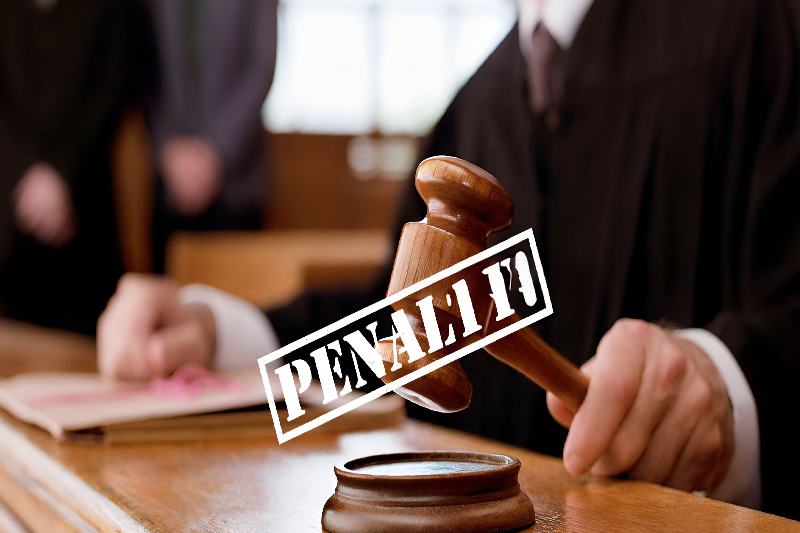
CCPA Cracks Down on Misleading Claims: Rs 8 Lakh Fine Each for Dikshant IAS and Abhimanu IAS Coaching Centres
Upholding Transparency in Education Advertising
The Central Consumer Protection Authority (CCPA) has imposed a fine of ₹8 lakh each on two prominent coaching institutes — Dikshant IAS and Abhimanu IAS — for engaging in misleading advertisements, unfair trade practices, and violating provisions under the Consumer Protection Act, 2019.
This decisive action comes amid growing concerns about deceptive marketing practices in India’s competitive coaching sector, particularly involving the unauthorised use of successful UPSC candidates’ names and photographs in promotional materials.
According to the CCPA, both institutes were found guilty of exaggerating their success rates and misrepresenting student associations to attract aspirants, thereby infringing on consumer rights and trust.
Previous Actions Against Other Coaching Centres
The authority’s crackdown on unethical promotional practices is not new. Just last month, Delhi-based Drishti IAS was fined ₹5 lakh for similar violations, while earlier this year, Vision IAS faced a penalty of ₹3 lakh for misleading advertisements about its students’ performance in the Civil Services Examination.
To date, the CCPA has issued 57 notices to various coaching institutes for deceptive advertising and unfair trade practices, levying total penalties exceeding ₹98.6 lakh across 27 institutions.
The Case Against Dikshant IAS
The controversy surrounding Dikshant IAS began when Mini Shukla (AIR 96, UPSC CSE 2021) filed a complaint stating that her name and photograph were used without her consent in the institute’s promotional materials.
Shukla clarified that she had no formal association with the institute and had only attended a mock interview session conducted by Chahal Academy, which she later discovered was jointly organised with Dikshant IAS.
During its investigation, the CCPA found that Dikshant IAS had advertised “200+ Results in UPSC CSE 2021”, featuring the names and photos of multiple successful candidates without disclosing the extent of their engagement with the institute.
Despite repeated opportunities, the institute failed to provide credible evidence to substantiate its claims. The promotional materials were also found to intentionally omit key details, misleading prospective aspirants into believing that Dikshant IAS played a substantial role in their UPSC preparation.
The CCPA concluded that the misleading claims distorted facts and influenced students’ decision-making, violating the principles of fair trade and transparency.
The Case Against Abhimanu IAS
In a similar case, Natasha Goyal (AIR 175, UPSC CSE 2022) lodged a complaint against Abhimanu IAS, alleging that the institute had falsely projected her as a student and used her photograph without authorisation.
Upon inquiry, the CCPA discovered that the institute had published multiple exaggerated claims, including:
- “2200+ Selections since Inception”
- “10+ Selections in IAS Top 10”
- “1st Rank in HCS/PCS/HAS”
These promotional materials also displayed the names and photos of successful candidates from diverse competitive exams held in 2023 — such as the UPSC Civil Services Examination, Haryana Civil Services (HCS), RBI Grade-B, and NABARD Grade-A.
However, the institute failed to clarify the nature of its association with these candidates. The CCPA’s investigation revealed that out of 139 claimed selections, at least 88 candidates had cleared their exams independently, without any formal classroom or coaching support from the institute.
Abhimanu IAS’s involvement was limited to mock interviews or the distribution of question banks, making its claims of mentorship and training highly misleading.
Misleading Practices and Their Impact
The CCPA found that both Dikshant IAS and Abhimanu IAS had omitted crucial information in their advertising, creating a false impression of their role in students’ success.
Such misleading promotions not only deceive aspirants into enrolling under false pretenses but also undermine the credibility of legitimate coaching institutions that follow ethical advertising practices.
The authority stated that these omissions “deprived students of the ability to make informed decisions” — a violation that directly contradicts the provisions of the Consumer Protection Act, 2019, which mandates truthful and transparent advertising in all commercial communications.
A Growing Need for Ethical Standards in Coaching
The CCPA’s recent actions signal a strong message to India’s booming coaching industry, which caters to millions of aspirants preparing for exams like the UPSC Civil Services, SSC, and various State Public Service Commission tests.
With increasing competition and commercialisation, many coaching centres resort to questionable marketing tactics, including false success claims, paid testimonials, and unauthorised use of student data.
Experts believe that stronger regulatory oversight and ethical advertising standards are essential to protect students from misinformation and ensure fair competition within the sector.
Consumer Awareness and Accountability
The CCPA’s ongoing campaign against deceptive practices is part of its broader mission to promote transparency, accountability, and fairness in all consumer-facing industries.
It has repeatedly advised students and parents to verify claims made by coaching institutes before enrolling, including cross-checking testimonials and requesting written proof of results.
The authority also encourages candidates to report misleading advertisements to the National Consumer Helpline (NCH) or through the Consumer App, enabling swift action against violators.
A Warning to the Coaching Industry
The penalties imposed on Dikshant IAS and Abhimanu IAS serve as a strong warning to all coaching centres across India. With more than ₹98 lakh in cumulative fines already levied and multiple ongoing investigations, the CCPA has made it clear that false claims and exploitative marketing will not be tolerated.
This move reinforces the government’s commitment to ethical business conduct and student protection, ensuring that aspirants receive accurate information when choosing educational support services.
Conclusion: Upholding Trust in Educational Advertising
The CCPA’s firm stance highlights the urgent need for integrity and accountability in India’s competitive coaching ecosystem. As students invest time, effort, and resources in pursuit of their career dreams, it becomes imperative that the institutions guiding them operate with honesty and transparency.
By penalising misleading promotions, the CCPA not only safeguards students’ rights but also sets a precedent for responsible communication — ensuring that success stories in education remain authentic, verifiable, and truly earned.


